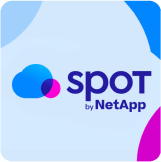Accelerate AI, ML, and Software Innovation with Confidence
Secure your software supply chain and streamline AI/ML delivery with
an enterprise-grade MLOps and DevSecOps solution


The Software Supply Chain Platform
for DevOps, DevSecOps, MLOps & IoTOps
The cloud-native JFrog Platform is the single source of truth for all software packages, data, and ML models utilized and generated in the software development process. Confidently innovate with automated controls that ensure the utmost security and compliance over your software releases.
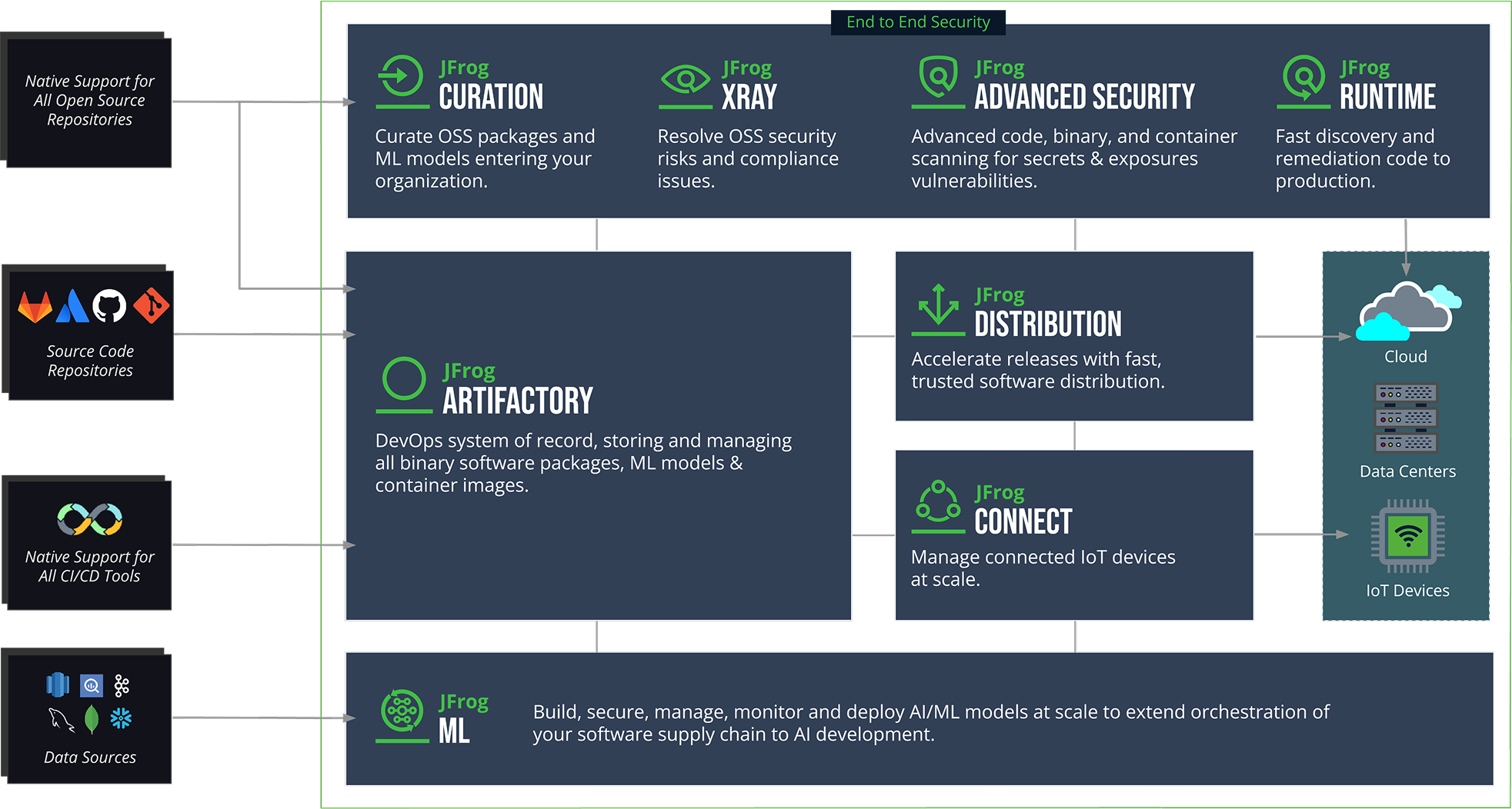
MLOps-Ready to Accelerate AI/ML Delivery
JFrog’s MLOps capabilities enable leading-edge technology and software companies to safely, securely, and swiftly adopt AI, ML, and large language models (LLMs). Unified DevSecOps with ML model management, storage, training, governance, and security for seamless deployments.
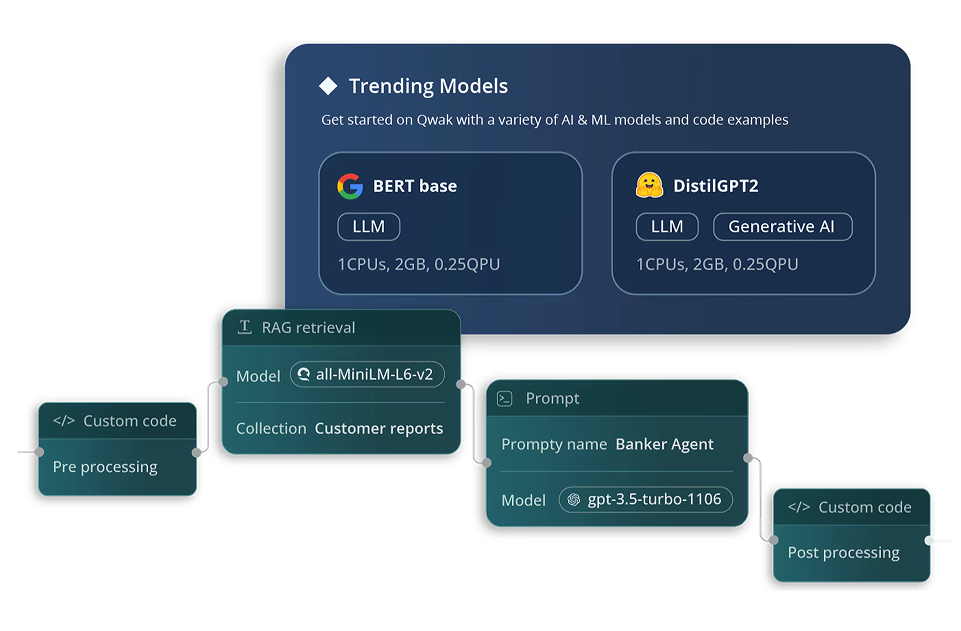
End-to-End DevOps & DevSecOps Automation
JFrog delivers a seamless, automated pipeline for software development, application security, and release deployment, reducing complexity and increasing efficiency. Integrations with industry-leading tools enable innovation and automation to coexist in a streamlined, trusted software supply chain.
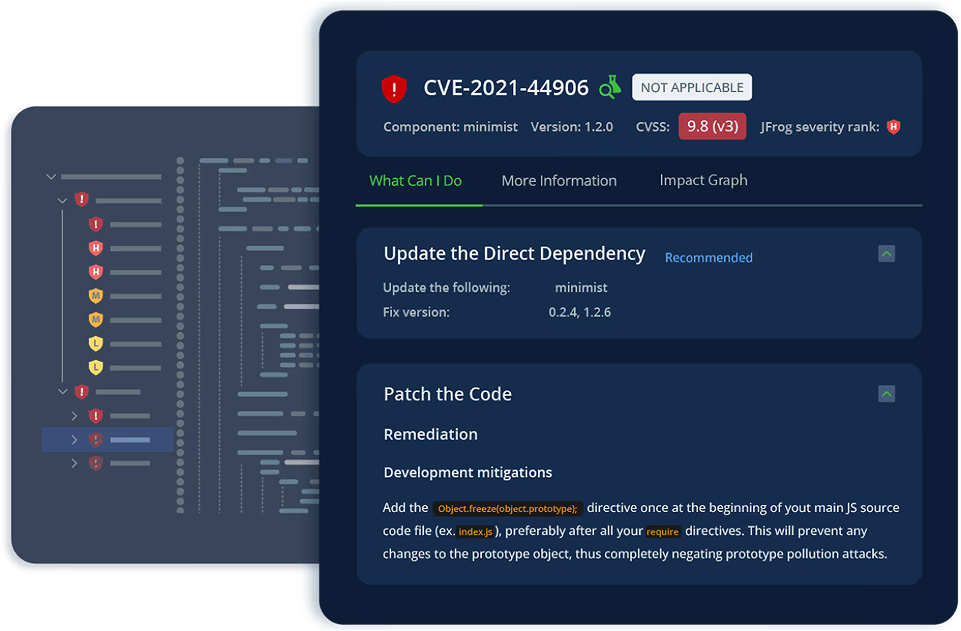
Security and Traceability for Integrating ML Models into your DevOps processes
Built-in artifact and ML model security capabilities ensure trust and compliance across the software development lifecycle, helping organizations innovate while mitigating risks and vulnerabilities. Scale with confidence and adhere to any challenging industry regulations.
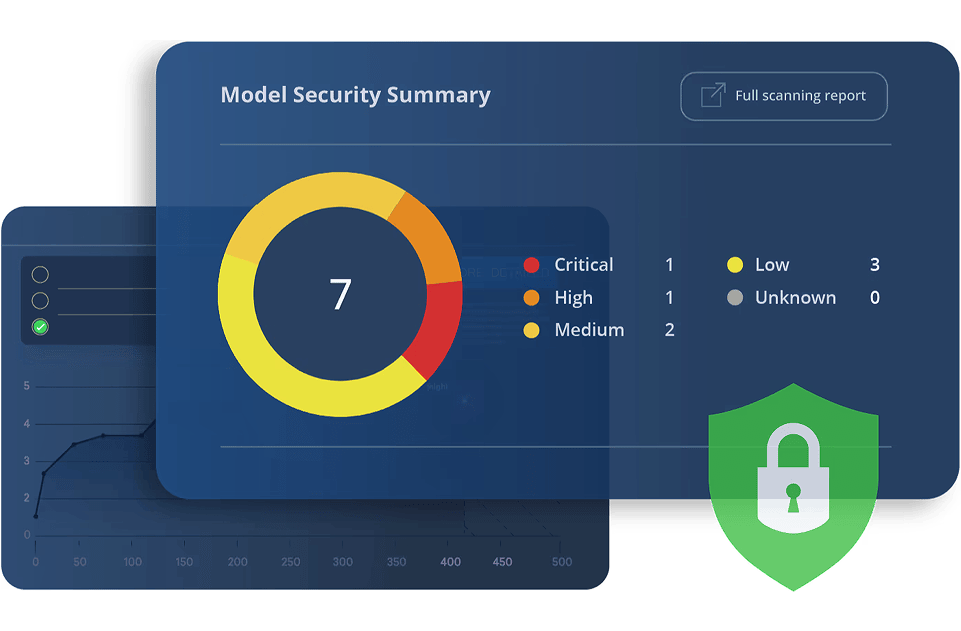
Universal, Future-proof Platform with Hybrid Deployment
JFrog’s open platform supports all package types, DevOps tools, ML models, containers, and architectures, enabling flexible and scalable strategies without suffering vendor lock-in. Deploy anywhere with a platform supporting cloud, multi-cloud, SaaS, self-hosted, air-gapped, and hybrid environments.
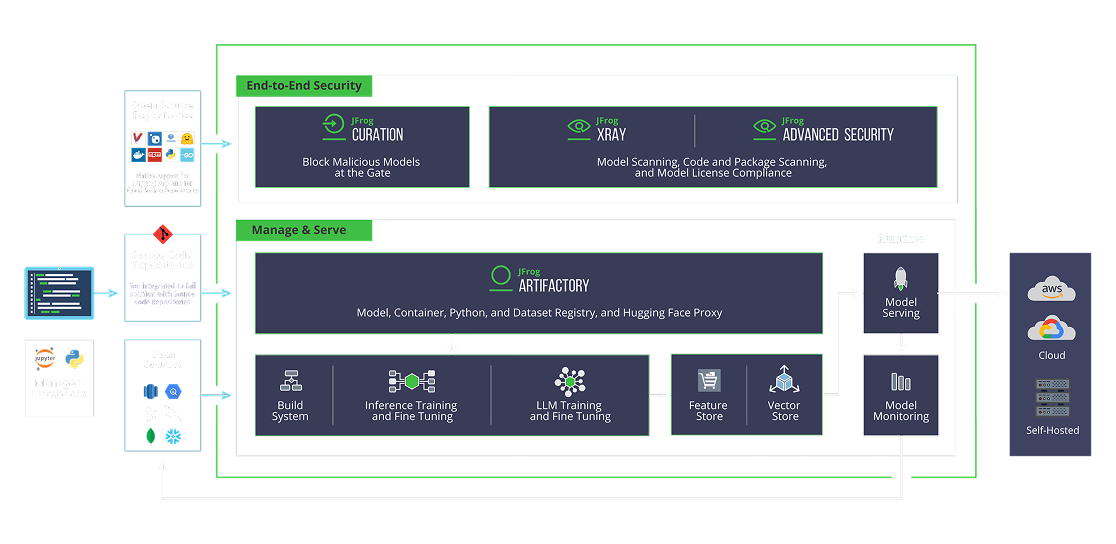
Why Technology & Software Companies Love JFrog
"We wanted a SaaS solution to maintain the infrastructure, so now we use JFrog to manage our artifacts that our development teams use throughout their life cycles. We are highly dependent on JFrog for Artifactory, Xray, and the customer support from JFrog is top-tier as well."
Experience the JFrog Platform
JFrog Serves over 80% of the Fortune 100

















